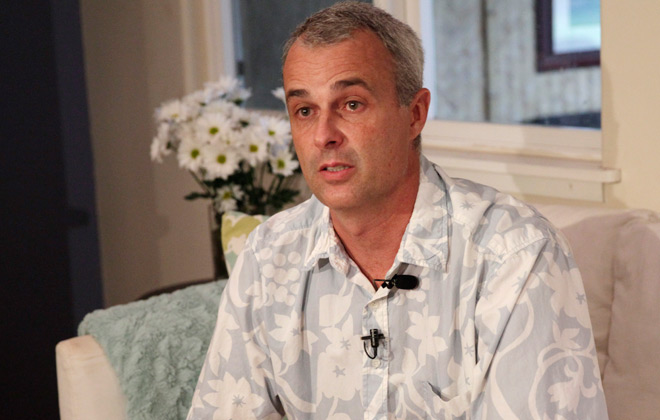UH to vacate basketball wins, cut scholarships after NCAA violations

Gib Arnold: The ex-UH coach has a grievance against the school for $1.4 million
The University of Hawaii said Friday it will vacate 36 victories, reduce scholarships and practice time, pay a $10,000 fine, and place itself on one-year probation for violations of NCAA rules by its men’s basketball program.
The self-imposed sanctions were contained in a 64-page reply to the NCAA that UH filed Friday.
The NCAA issued its Notice of Allegations Jan. 30, citing UH for seven violations, all of them Level I or Level II, the most severe of four categories.
In its response, UH asked that a Level II violation regarding impermissible benefits for recruits be re-classified as a less-severe Level III violation.
UH said it will forfeit one scholarship for each of the next two seasons, 2015-16 and 2016-17, reducing to 12 from 13 the number of allowable scholarships.
The one-year probation does not involve post-season, a UH spokesman said.
Don't miss out on what's happening!
Stay in touch with breaking news, as it happens, conveniently in your email inbox. It's FREE!
The victories it will vacate will be from the 2012-13 and 2013-14 seasons in which UH had gone 17-15 and 20-11.
Although their names were redacted in the UH reply, former players Isaac Fotu and Davis Rozitis played in the 2012-13 and 2013-14 seasons, and have been cited in the NCAA allegations.
UH also said it will strengthen its rules education for athletes, coaches and staff.
UH dismissed head coach Gib Arnold and assistant Brandyn Akana Oct. 28 “without cause.” Fotu was subsequently declared ineligible. He left school to play professionally in Spain. Rozitis graduated before the NCAA completed its investigation.
UH said, “For the most part these violations involve either intentional or careless failure to follow well-known bylaws that members of the men’s basketball coaching staff understood but failed to obey. The coaches compounded the adverse impact of these poor decisions when they (1) failed to report to the university’s compliance department their own or other violations in the program; (2) instructed or encouraged staff members and student-athletes to conceal or not report the violations or; (3) provided false or misleading information during the investigation rather than admit the violation occurred.”
The NCAA typically has 60 days to respond to UH’s reply after which a hearing before the NCAA’s Committee on Infractions is scheduled. The committee may accept or add additional penalties.
In a statement, UH said, “According to the NCAA process, the next step is a hearing before the NCAA Committee on Infractions to be held in approximately two months.”
The school said it, “cannot comment on the substance of the NOA response because it is an ongoing NCAA matter, as required by the NCAA bylaws on confidentiality. UH has fully cooperated with the NCAA and will continue to do so.”
UH said it has yet to receive a copy of Arnold’s response to the NCAA.
After months of investigating, the NCAA alleged in January that the UH basketball program violated several rules, including impermissible tryouts, improper benefits, dishonest conduct and using operations people as coaches.
In the allegations, Arnold was charged with “obstructing an investigation or attempting to conceal the violations.” In addition, the NCAA claimed “Arnold knowingly influenced the then directors of operations to conceal their participation in coaching, instructional and/or recruiting activities from the media and the institution in order to conceal the violations.
“Arnold knowingly influenced then men’s basketball staff members to fabricate a story to report to the institution that the on-campus evaluation conducted between April 19 and 20, 2013, was neither arranged nor observed by the men’s basketball staff,” according to the document.
Lastly, “Arnold knowingly influenced at least four then men’s basketball student-athletes to refrain from reporting” issues.
The NCAA also cited Akana for having “knowingly provided a then men’s basketball student-athlete with an Apple iPad. Additionally, Akana knowingly altered an admissions document of a then men’s basketball prospect and submitted the document to the institution to facilitate the prospect’s admission.”
Also, the NCAA claimed “Akana knowingly provided the institution and NCAA enforcement staff with false or misleading information when he denied providing the then student-athlete with an iPad despite the factual evidence.”



